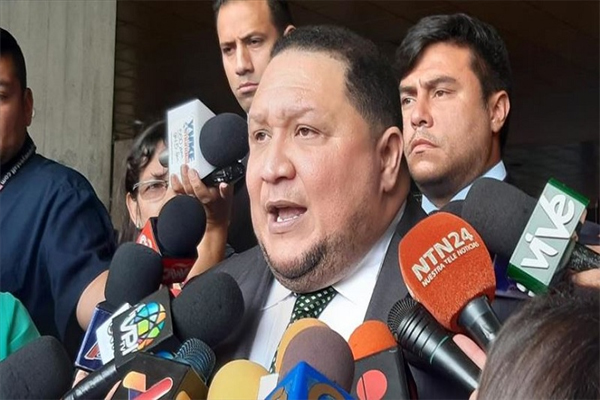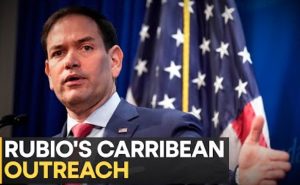
Venezuela’s supreme court suspended the results of the political opposition’s primaries, held earlier this month. María Corina Machado was overwhelmingly elected to represent a unity platform challenging President Nicolás Maduro in elections next year. The Maduro-loyal court also ratified bans against holding public office which apply to Machado and other opposition leaders.
Venezuelan officials are demanding the opposition hand over all documents relating to the primary election, including logs that could identify voters, reports AFP.
Constitutionalists say the ruling is “unexectuable,” reports Efecto Cocuyo. (And more Efecto Cocuyo.)
The decision will no doubt impact the loosening of U.S. sanctions against Venezuela’s oil sector, which were implemented earlier this month in exchange for advances in negotiations for freer and fairer elections.
“This is a clear violation of the agreement the government signed with the opposition in Barbados and an outright escalation of the political crisis,” Atlantic Council senior fellow Geoff Ramsey told the Guardian. “Maduro’s acting like he doesn’t care about the prospect that the US could snap back the sanctions.”
The U.S. State Department had already said it will reinstate sanctions if Maduro’s government did not lift bans on opposition candidates and free political prisoners and “wrongfully detained” Americans by the end of November, notes Reuters.

Regional Relations
- Venezuelan President Nicolas Maduro said that Guyana seeks to halt a referendum scheduled for Dec. 3 on the disputed Essequibo territory, with an appeal filed yesterday before the International Court of Justice, reports Bloomberg.
Brazil
- “Deforestation has a far greater impact on regional temperatures than previously believed, according to a new study of the Brazilian Amazon that shows agricultural businesses would be among the biggest beneficiaries of forest conservation.” — Guardian
- A historic drought is ravaging the Amazon rainforest. About 600,000 people have been affected in Amazonas state, where the massive Rio Negro has reached a 120-year low, putting at risk the livelihoods of remote Indigenous and riverside communities, reports the Guardian.
- “Brazil Finance Minister Fernando Haddad reiterated his pledge to eliminate the country’s budget deficit next year, even after President Luiz Inacio Lula da Silva last week cast doubt on the importance of hitting the target,” reports Bloomberg.
Migration
- The Haitian government suspended all charter flights to Nicaragua yesterday, targeting a path increasingly used by desperate people fleing poverty and violence, reports the Associated Press.
- The move comes amid increasing concerns about a wave of migration from Haiti to the U.S. via Nicaragua, reports the Miami Herald. (See yesterday’s briefs.) The Haiti-Nicaragua flights began in August and have grown from seven flights a day to as many as 15 daily charters. There are also charter flights from the neighboring Dominican Republic and the Turks and Caicos carrying Haitians, who pay as much as $4,000 per seat for the trip.
- A U.S. federal judge “barred the Biden administration from cutting or removing razor wire that Texas officials placed along a busy stretch of the U.S.-Mexico border until the legality of the barriers is more fully addressed in court,” reports the Washington Post.
Chile
- Chile has a new proposed constitution after the right-wing dominated council assembly in charge of drafting it approved the final document yesterday, reports Reuters. (See last week’s Chile Update.)
- Chile’s “second attempt to replace the constitution imposed in 1980 by Augusto Pinochet reveals how the ghost of the dictator continues to haunt this country,” writes Juan Elman in Open Democracy. The constitutional process is marked by two paradoxes: its drafting is in hands of a party that campaigned against replacing it, and “the approval of the new constitution will depend on a disengaged electorate.”
Jordana Timerman / Latin America Daily Briefing
http://latinamericadailybriefing.blogspot












